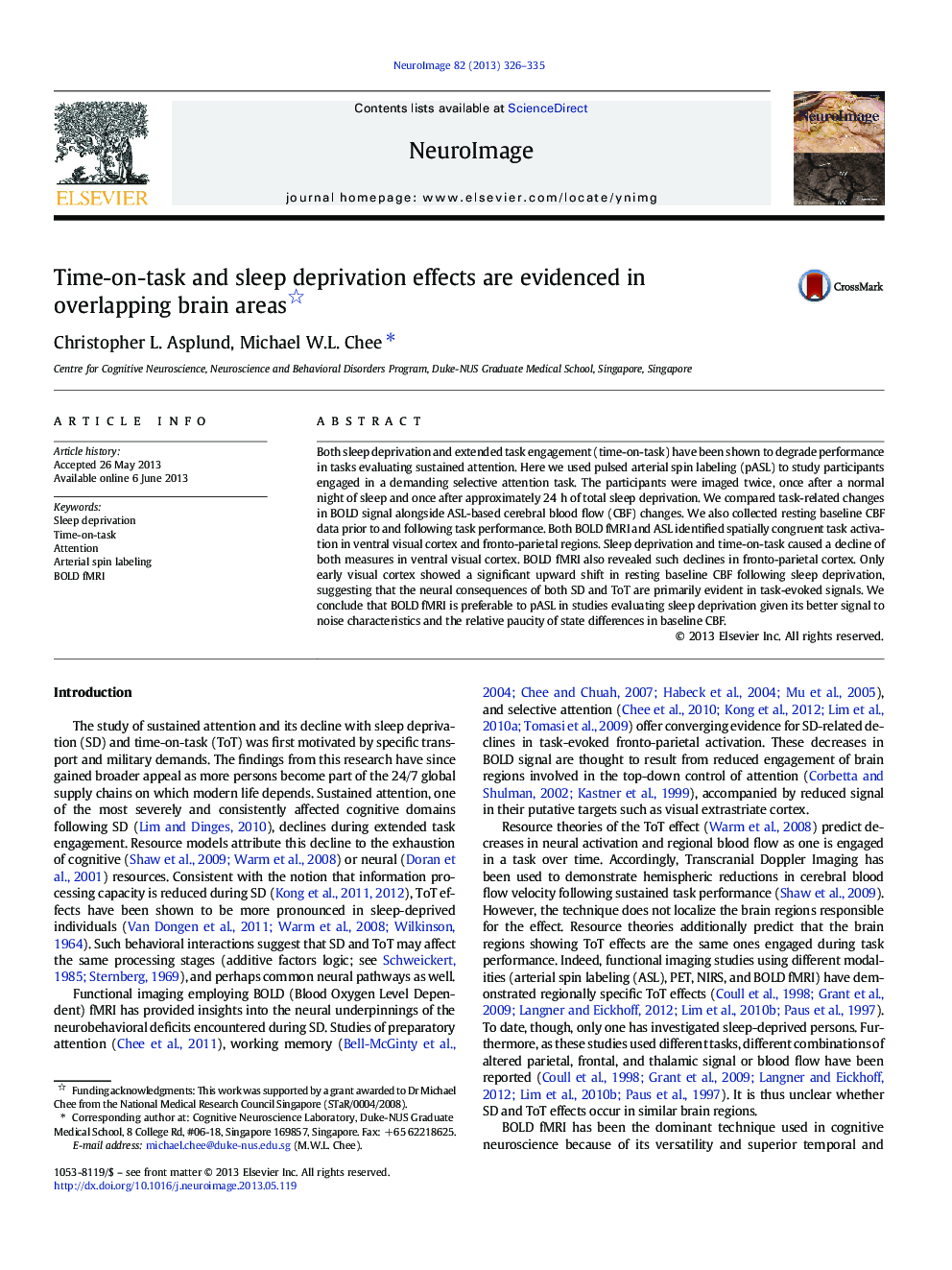| Article ID | Journal | Published Year | Pages | File Type |
|---|---|---|---|---|
| 6028937 | NeuroImage | 2013 | 10 Pages |
Abstract
Both sleep deprivation and extended task engagement (time-on-task) have been shown to degrade performance in tasks evaluating sustained attention. Here we used pulsed arterial spin labeling (pASL) to study participants engaged in a demanding selective attention task. The participants were imaged twice, once after a normal night of sleep and once after approximately 24Â h of total sleep deprivation. We compared task-related changes in BOLD signal alongside ASL-based cerebral blood flow (CBF) changes. We also collected resting baseline CBF data prior to and following task performance. Both BOLD fMRI and ASL identified spatially congruent task activation in ventral visual cortex and fronto-parietal regions. Sleep deprivation and time-on-task caused a decline of both measures in ventral visual cortex. BOLD fMRI also revealed such declines in fronto-parietal cortex. Only early visual cortex showed a significant upward shift in resting baseline CBF following sleep deprivation, suggesting that the neural consequences of both SD and ToT are primarily evident in task-evoked signals. We conclude that BOLD fMRI is preferable to pASL in studies evaluating sleep deprivation given its better signal to noise characteristics and the relative paucity of state differences in baseline CBF.
Related Topics
Life Sciences
Neuroscience
Cognitive Neuroscience
Authors
Christopher L. Asplund, Michael W.L. Chee,
